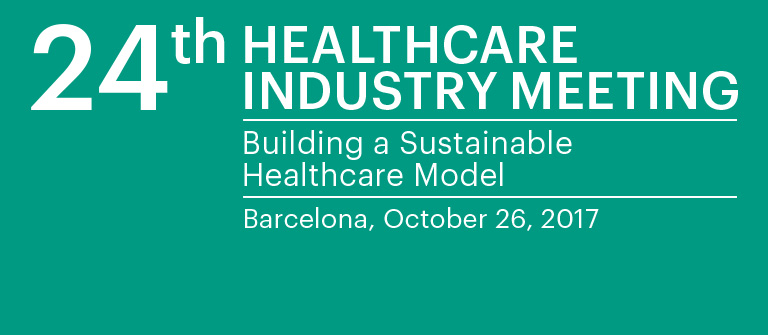
Healthcare systems around the world are facing increasing challenges. On the one hand, the innovation pipeline is stronger than ever while on the other hand financial constraints and population ageing are increasing the pressure on the systems’ sustainability. What are the major challenges that need to be overcome to make innovation compatible with a sustainable healthcare system? How can we move towards a value-based healthcare while still keeping “care” in the healthcare? How can we manage change and still keep the patient in the center?
This Meeting offers a first-class platform to top executives, healthcare providers, academics and field experts to share their experiences and provide their insight on the current state and future of the industry to continue to seek innovative ways to respond to the incredible changes affecting the healthcare sector.
IESE Barcelona
Arnús i Garí, 3-7
08034 Barcelona
IESE Industry Meetings
tel: +34 93 253 43 36
| 9:00-9:30 | OPENING SESSION
• Prof. Franz Heukamp, Dean, IESE Business School |
| 9:30-10:00 | ECONOMICS AND HEALTHCARE
Prof. Núria Mas will analyze the world economic trends for the academic course 2017-2018 and she will reflect on their implications for the sustainability of our healthcare systems • Prof. Núria Mas, IESE Business School |
| 10:00-11:30 | BUSINESS MODELS FOR SUSTAINABLE HEALTHCARE
The shift to value-based healthcare is inevitable. Life science companies and health care providers are being forced to re-examine their value proposition and look for new business models, many of them requiring large-scale collaborations across many partners. What works best when trying to get payers, providers and patients on board? • Dr. Manel del Castillo, CEO, Hospital Sant Joan de Déu (Children’s Hospital), Barcelona Moderator: Cándido Pérez, Partner KPMG Spain |
| 11:30-12:00 | Coffee break |
| 12:00-12:45 | HEALTH 4.0 WHAT DOES THE FUTURE HOLD?
Digital health is bringing healthcare to our fingertips. Are we ready for this? As more individual data goes digital, healthcare stakeholders have access to promising new knowledge, but, how can healthcare stakeholders make the most of it? How will the healthcare market change? Who will play a central role: non-traditional players or traditional players leveraging their knowledge and expertise? • Diego Esteban, Partner, Russell Reynolds Moderator: Prof. Pedro Nueno, IESE Business School |
| 12:45-13:30 | KEYNOTE: SUSTAINABLE INNOVATION: AN OXYMORON?
• Joaquin Duato, Worldwide Chairman, Pharmaceuticals, Johnson & Johnson Moderator: Prof. Núria Mas, IESE Business School |
| 13:30-14:45 | Lunch |
| 14:45-15:45 | INNOVATION
What is the future of devices in health? Genomics, precision medicine, biomarkers, healthcare solutions are quickly evolving. The future will inevitably involve medical robots. How can we make them attuned with keeping the “care” in healthcare? How can we make them compatible with a sustainable healthcare system? • John M. Collins, Chief Operating Officer, CIMIT, Consortia for improving Medicine with Innovation and Technology, Boston Moderator: Prof. Núria Mas, IESE Business School |
| 15:45-16:00 | Break |
| 16:00-17:00 | COMMUNICATION IN A PATIENT CENTRIC VALUE-BASED HEALTHCARE SYSTEM
Changes in healthcare are occurring very rapidly. Concepts such as prioritization, looking for value, patient empowerment, the role of prevention… are becoming central. How can we manage change? Everyone involved wants to understand why change is happening and how they will be affected. A clear communication is key for a successful transformation to take place. Can we find a common ground for debate? • Dr. José Miguel Cisneros, Director programa PIRASOA, Director de la Unidad Clínica de Enfermedades Infecciosas, Microbiología y Medicina Preventiva, Hospital Universitario Virgen del Rocío de Sevilla Moderator: Prof. Núria Mas, IESE Business School |
| 17:00-17:30 | REGULATORY INITIATIVES TO FACILITATE ACCESS TO INNOVATION
What is the perspective of the policy makers? Which are the main regulatory changes that will affect the early adoption of innovation in European healthcare systems? • Dr. Arantxa Sancho, MD. Clinical Pharmacologist, Scientific expert AEMPS-EMA, Ex-CHMP, Instituto de Investigación Sanitaria Puerta de Hierro, Majadahonda, Madrid Moderator: Prof. Núria Mas, IESE Business School |
| 17:30-17:40 | FINAL REFLECTIONS
• Prof. Núria Mas, Chair of the Meeting, IESE Business School |
| 17:40 | CLOSING SESSION
• Humberto Arnés, General Manager, Farmaindustria |
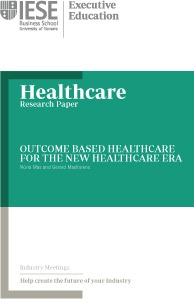
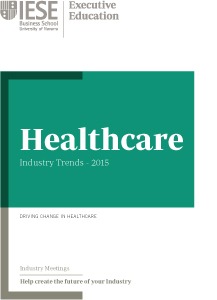
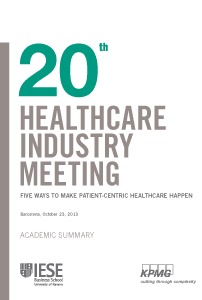
2016 · Towards Value-Based Healthcare
2015 · Innovation for the New Healthcare Era
2014 · Propelling Change
2013 · Making Patient-Centric Care Happen
2012 · Value Creation and Value Sharing
2011 · Toward a Change of Model
2010 · The Healthcare Industry in 2020
2009 · Toward a New Model of Industry (Pharma) / Recognizing Value (Healthcare)
2008 · Betting on the Sector (Pharma) / Innovating With Responsibility (Healthcare)
2007 · The Global Opportunity
2006 · Contributing More (Pharma) / The Value of Technology (Healthcare)
2005 · Healing Under Pressure
2004 · Rethinking Health
2003 · Health Technologies and the Management of Health Budgets
2002 · Key Variables for Consideration
2001 · Whither the Spanish Health System?
2000 · The Market for Medical Devices in the European Union
1999 · New Millennium, New Challenges
1998 · Health Reform in Practice: New Ways to Buy and Sell
1997 · Economic Limits of Health Since 1998
1996 · Spanish Health: Reality, Change and Adjustment
1995 · Present and Future
1994 · Building From the Crisis
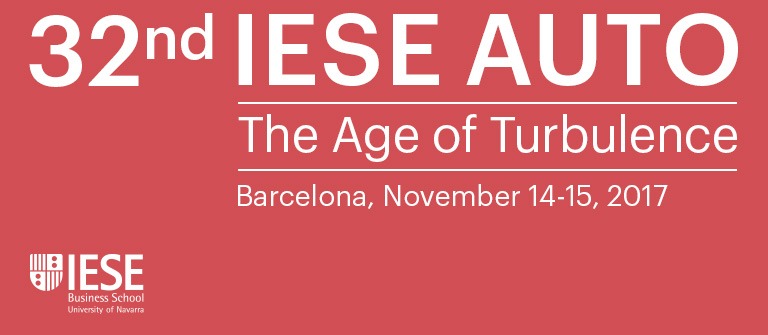
In 2017 the automotive industry is heading into an age of turbulence: recent and ongoing changes in global politics add an additional layer of complexity to demographic, technological and regulatory changes already affecting the industry. New players are trying to establish a foothold and digital, asset-light business models are evolving by leveraging their ability to quickly adapt to a continuously changing environment. At the same time the reconfiguration of the European OEM landscape and the potential limitation of access for foreign-produced vehicles to the North American market generate uncertainty in the industry. Against this scenery leading companies in the industry – suppliers, OEMs and distributors – need to find ways to increase their flexibility while not putting their existing revenue streams at risk. How can the industry of industries, which generates more jobs, more innovation and more middle class households than most other industries, wether this Age of Turbulence?
At this year’s edition of our annual meeting of the automotive industry, IESE AUTO, we hope to shed some light on these questions while also addressing the “classic” questions related to the Spanish, European and global markets. In doing so, we will continue our tradition of providing a premier platform for senior executives from the automotive industry, industry experts and leading academics to exchange ideas about the future of the industry of industries.
IESE Barcelona
Arnús i Garí, 3-7
08034 Barcelona
IESE Industry Meetings
tel: +34 93 253 43 36

Founding Chair
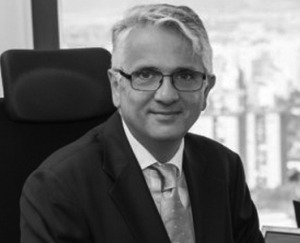
With the expert contribution of
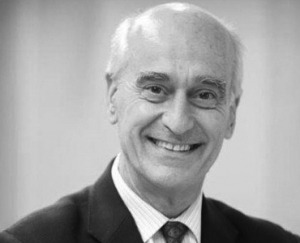
Speaker
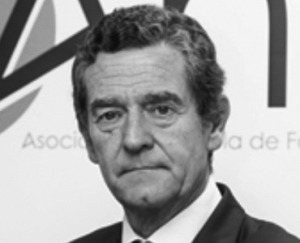
Speaker
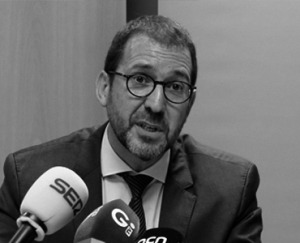
Speaker
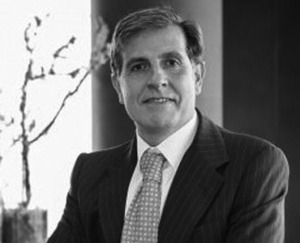
Speaker
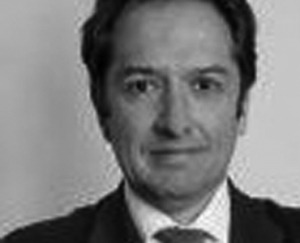
Speaker
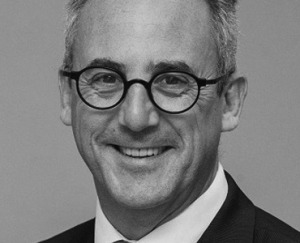
Speaker
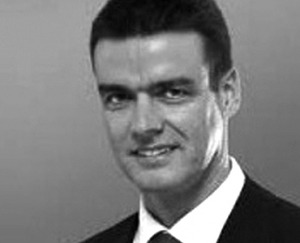
Speaker
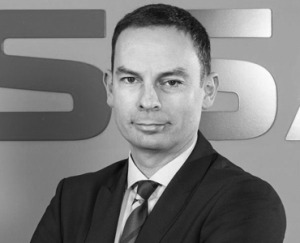
Speaker
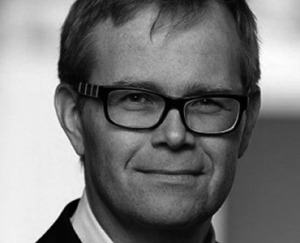
Speaker
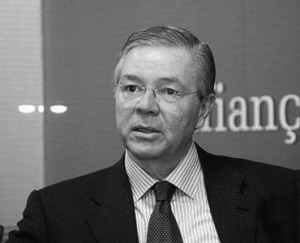
Speaker
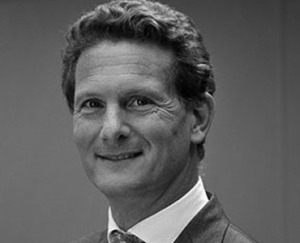
Speaker
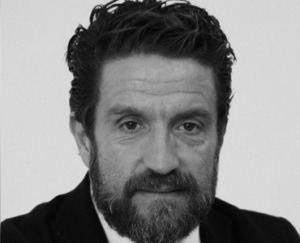
Speaker
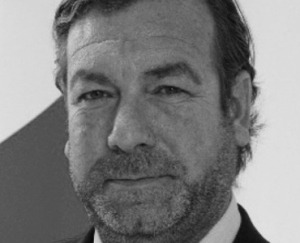
Speaker
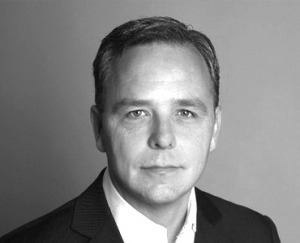
Speaker
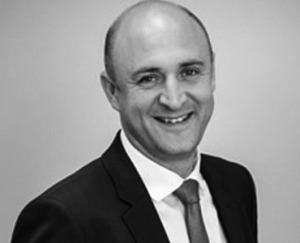
Speaker
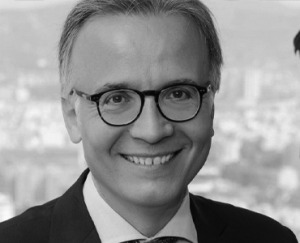
Speaker
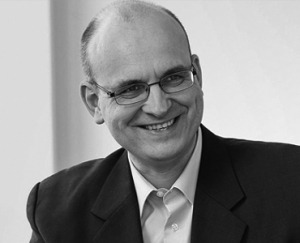
Speaker
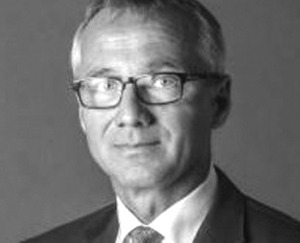
Speaker
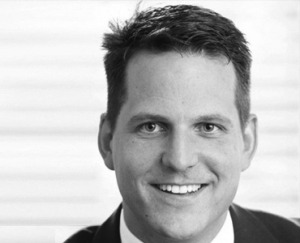
Speaker
| 08:30-09:00 | WELCOME AND REGISTRATION |
| 09:00-09:15 | WELCOME AND OPENING SESSION
• Prof. Dr. Marc Sachon, Chairman IESE AUTO, IESE Business School |
| 09:15-09:45 | INTRODUCTION TO “THE AGE OF TURBULENCE”
• Prof. Dr. Marc Sachon, IESE Business School |
| 09:45-10:15 | THE PERSPECTIVE OF ANFAC
• Mario Armero, Executive Vice President, ANFAC Moderator: Prof. Dr. Marc Sachon, IESE Business School |
| 10:15-11:00 | DEEP DIVE: THE STATE OF ELECTRIC MOBILITY
New regulatory environments at the municipal, regional and national level have given a strong push to electric mobility across the globe. What insights can be shared by one of the leading OEMs in this arena? • Gilles Normand SVP Electric Vehicle Program and New Business, Groupe Renault Moderator: Prof. Dr. Marc Sachon, IESE Business School: |
| 11:00-11:30 | Coffee Break and CIAC-Innovation Projects Exhibition |
| 11:30-11:50 | NEW MANUFACTURING AND GLOBAL CHANGE
Two key important trends are changing the automotive industry today: technology and geopolitics. In this year’s meeting we will try to shed some light on both of them. A key technological change in manufacturing is Industry 4.0. Once the vehicles are built they need to be shipped and so the topic of logistics is very important, especially in an environment of geopolitical change and the risk of growing trade barriers. How are global automotive logistics changing, what is the role of geopolitical changes and technological advancements? Dealerships continue to play a key role in the value chain and this is unlikely to change any time soon. In this block we will reflect on the challenges of this new context. Speaker & Moderator: Natán Díaz, Partner, Management Consulting, KPMG in Spain |
| 11:50-12:25 | The Impact of Geopolitics on Automobile Logistics
• Antonio Fondevilla, Executive Vice-President Global Automotive Sector Lead, CEVA Logistics |
| 12:25-13:00 | The Changing Landscape in Spain
• Gerardo Pérez, President, FACONAUTO |
| 13:00-14:15 | Lunch |
| 14:15-14:45 | INNOVATION IN MANUFACTURING (I)
What is Industry 4.0, its building blocks and what are its implications for the automotive industry? We will focus on the actual manufacturing side of Industry 4.0, giving a particular focus to the topic of industrial 3D printing in automotive. Current developments and the implications of Industry 4.0 for Tier 1 and Tier 2 suppliers will be addressed, both from a Spanish and an international perspective. • Speaker & Moderator: Prof. Dr. Marc Sachon, IESE Business School |
| 14:45-15:30 | Deep Dive: The State of Industrial 3D Printing
• Nikolai Zaepernick, SVP Central Europe, EOS |
| 15:30-16:30 | Innovation-Driven Suppliers: Key to the Future
• Torsten Greiner, CEO, EDSCHA |
| 16:30-17:00 | Coffee Break and CIAC-Innovation Projects Exhibition |
| 17:00-18:00 | INDUSTRY 4.0 IMPLEMENTATION
Building on the previous content block, we will move the focus from actual manufacturing to managing processes and factory automation technology, two key elements of Industry 4.0. • Pascual Dedios-Pleite, President, Siemens Industry Software and General Manager, Siemens Digital Factory Moderator: Vicenç Aguilera, President, CIAC |
| 18:00-19:00 | Case Discussion: “Hella: Industry 4.0 in China”
The IESE case study of 2017 presents a black market problem Hella was facing in China. To overcome this challenge, the company was evaluating whether or not to implement a new data collection technology that would allow it to monitor the use of its injection molds. • Prof. Dr. Marc Sachon, IESE Business School Note: Participants should read the case in advance to get the most from this discussion. |
| 19:00-19:15 | CLOSING OF DAY 1
• Manel Blanco, Partner, Markets, KPMG in Catalonia |
| 19:15 | To end the day, participants are cordially invited to attend the “Networking cocktail” |
| 08:30-09:15 | Welcome Coffee |
| 09:15-09:45 | NISSAN’s NEVER-ENDING CUSTOMER SYNCHRONISATION
The automotive industry will see more change in the next 10 years than in the past 50 years. We will discuss how Nissan´s manufacturing philosophy, focused on the customer, is responding to that change. Participants will have the opportunity to engage with the speaker. • Alan Johnson, Managing Director, Nissan Motor Ibérica Moderator: Prof. Dr. Marc Sachon, IESE Business School |
| 09:45-10:30 | INNOVATION IN MANUFACTURING (II)
One key element of Industry 4.0 are process technologies and robots: they move and handle things in factories. What developments are taking place in production in general and in robotics in particular and how can they increase flexibility while keeping costs under control? Moderator: Prof. Dr. Marc Sachon, IESE Business School |
| The Future of the Factory</strong
Manufacturing is a core competence of the automotive industry. In this session we will hear about innovations in manufacturing that are taking place at leading OEMs. • Dr. Andreas Tostmann, Executive Vice-President for Production, SEAT |
|
| 10:30-11:15 | Deep Dive: The Future of Robotics
All OEMs are using robots in their factories and robots are currently undergoing significant changes that make them more flexible, connected and collaborative. We will discuss this in depth, hearing from one of the global industry leaders in robotics. • Stefan Lampa, CEO, KUKA Robotics |
| 11:15-11:45 | Coffee Break and CIAC-Innovation Projects Exhibition |
| 11:45-12:15 | MOBILITY PLATFORMS AND NEW FORMS OF MOBILITY
The internet and connectivity revolution have enabled the emergence of mobility platforms. While many may think that they are not relevant to the industry, examples in other sectors show that they can disrupt established businesses. In this block we will discuss this key topic from different perspectives, including electric vehicles. • Frank Tinschert , VP Telematics & Digital Solutions, MAN Moderator: Prof. Dr. Marc Sachon, IESE Business School |
| 12:15-13:15 | Mobility Solutions in Spain
• Miquel Martí, President and CEO, Moventia Spain • JJorge Ramos, CEO, IBIL Moderator: Prof. Dr. Pedro Nueno, IESE Business School |
| 13:15-13:30 | CLOSING
• Prof. Dr. Marc Sachon, Chairman IESE AUTO, IESE Business School |
| 13:30 | Closing Cocktail |
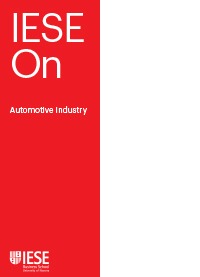
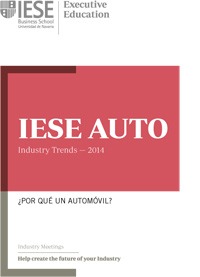
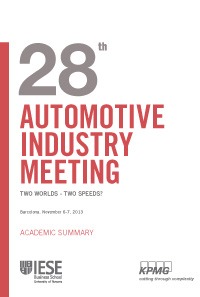
2016 · The Battle of Automotive
2015 · The Next 30 Years
2014 · Why Automobile
2013 · Two worlds, two speeds?
2012 · Tectonic Shifts
2011 · Megatrends in the Automotive Industry
2010 · Reinventing the Industry
2009 · The Automotive Industry in 2020
2008 · The Automotive Industry in the 2010’s: The Critical Decade?
2007 · Managing Global Uncertainty
2006 · Sustainability of the Automotive Industry in Europe
2005 · Competition and Cooperation
2004 · Back to Basics
2003 · Looking to the Future with Imagination
2002 · Competing Out of Confusion
2001 · Tightening the Screws
2000 · Consequences of Consolidation
1999 · Gods, Tombs, Brands and Experts
1998 · Another Call for Attention
1997 · Entering the 21st Century: The New Trends
1996 · East and West, the Challenge for Europe
1995 · Balance, Present and Future
1994 · How to Face the Recovery?
1993 · Where are we Going?
1992 · The End/Beginning of the Countdown
1991 · Building Up from the Crisis
1990 · Learning Organizations, Change and Innovation. Routines of the 90’s
1989 · A Call for Attention
1988 · Towards 1992: Single Market Consolidation
1987 · The Value-Added Chain in the Automotive Sector
1986 · The Future of the Automotive Sector
Ten years after the beginning of the financial crisis, and following an intense shake-up of the industry, the banking sector must address challenges and problems that place its operations at a critical juncture. These challenges are linked to the legacy of the crisis itself, but also —and above all— to economic, social, technological and even demographic changes, which were perhaps obscured by the urgency of the events of the last decade, but which today are playing out in all their profundity.
Thus, examples of issues that could have a disruptive effect on the future of banking include the possible correction of current regulatory excesses, the prolonged period of low interest rates, the financial relocation associated with Brexit, the experience of new banking supervision and resolution structures in the European Union, doubts about the future of globalization, the accelerated rate of technological change and the maturity of new professional generations.
To reflect on these changes and their possible effects, IESE-CIF, in collaboration with EY, is organizing the 13th Banking Industry Meeting. Regulators, academics, consultants and senior executives from the banking industry will have the opportunity to exchange views on a panorama that is as worrying as it is exciting.
IESE Madrid
Camino del Cerro del Águila, 3
28023 Madrid
IESE Industry Meetings
tel: +34 93 253 64 68
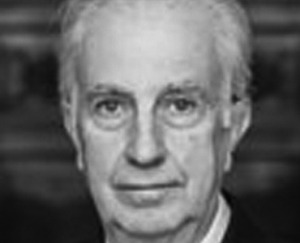
Speaker
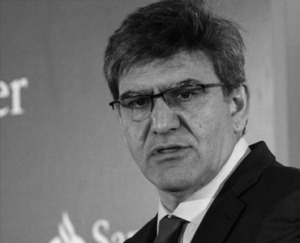
Speaker
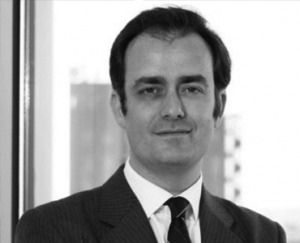
Speaker
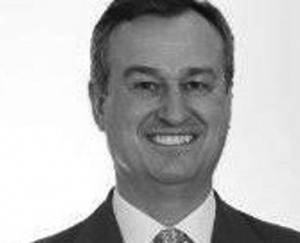
Speaker
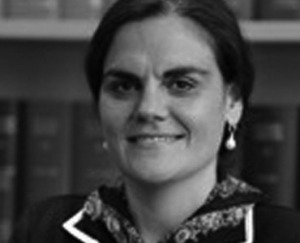
Speaker
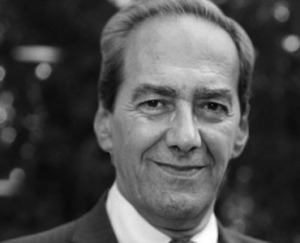
Speaker
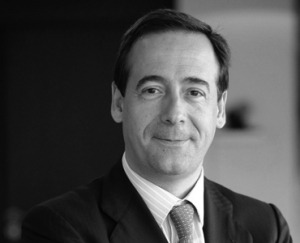
Speaker
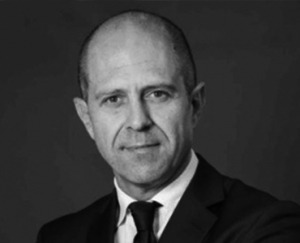
Speaker
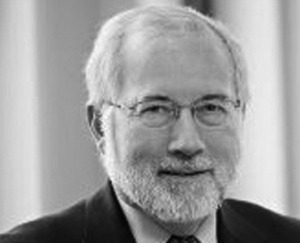
Speaker
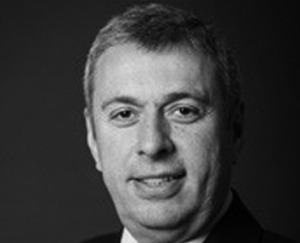
Speaker
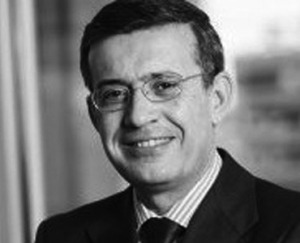
Speaker
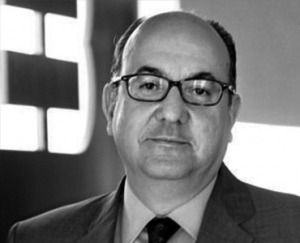
Speaker
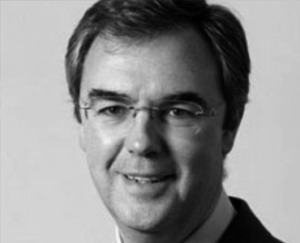
Speaker
| 08:15-08:45 | Welcome and Registration |
| 08:45-09:00 | INTRODUCTION
• Prof. Juan José Toribio, President, IESE-CIF (Center for International Finance) |
| 09:00-09:30 | OPENING SESSION
• Javier Alonso, Deputy Governor, Banco de España |
| 09:30-10:15 | BANKING, ECONOMICS AND SOCIETY
• Prof. José Manuel González-Páramo, IESE Business School and Executive Board Member, BBVA |
| 10:15-11:30 | BANKING IN THE UNITED STATES AND EUROPE: REGULATORY TRENDS
• Thomas Huertas, Global Regulatory Network Chair, EY Moderator: Mario Delgado, Partner Financial Services, EY Spain |
| 11:30-12:00 | Coffee Break |
| 12:15-13:00 | CREDIT AND BANK PROFITABILITY
• José Sevilla, CEO, Bankia Moderator: Prof. José Luis Suárez, IESE Business School |
| 13:00-13:45 | BANKING: BEYOND DIGITALIZATION
• César González-Bueno, CEO Spain and Portugal, ING Moderator: José Carlos Hernández, Partner Financial Services, EY Spain |
| 13:45-14:30 | COMPETITIVENESS AND REGULATION: ARE WE HEADING FOR GLOBAL IMBALANCE?
• José María Roldán, President, Spanish Banking Association Moderator: Alberto Placencia, Managing Partner Financial Services, EY Spain |
| 14:45-16:15 | Lunch |
| 16:15-16:45 | THE BAIL-IN IN THE EUROPEAN UNION: RECENT CASES
• Prof. Jorge Soley, IESE Business School |
| 16:45-17:30 | NEW STRATEGIC DEVELOPMENTS
• Gonzalo Gortázar, Chief Executive, CaixaBank Moderator: Prof. Jorge Soley, IESE Business School |
| 17:30-18:15 | GLOBAL BANKING STRATEGIES
• José Antonio Álvarez, CEO, Banco Santander Moderator: Prof. Juan José Toribio, IESE Business School |
| 18:15-18:30 | CLOSING SESSION |
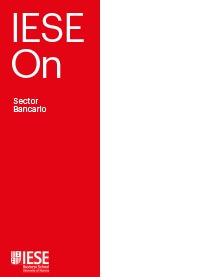
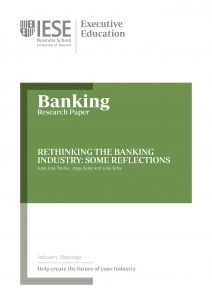
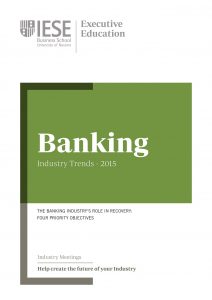
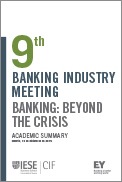
2016 · Banking in the Future
2015 · Banking in Today’s Competitive Environment
2014 · Bank’s Role in Recovery
2013 · Banking: Beyond the Crisis
2012 · Banking: Opportunities after the Crisis
2011 · Designing the New Banking Sector
2010 · Building the Future
2008 · The Global Opportunity
2006 · Innovation and Strategies for the Growth of the Banking Sector in Europe
2004 (September) · Banking in Europe: Building the Future
2004 (April) · Technology and Geographic Space: Strategic Keys for the Banking System
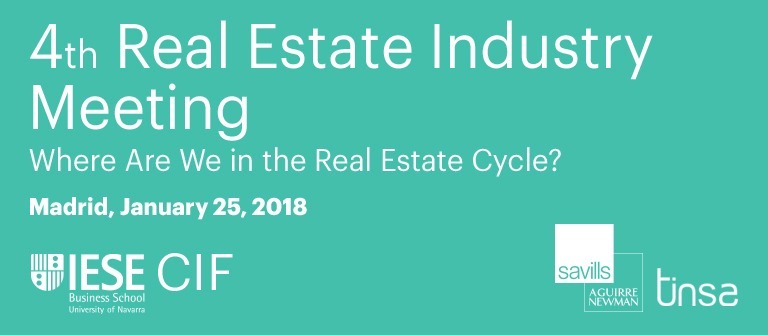
The real estate industry is currently going through a good patch. The recession seems to be long forgotten. Now all operators in the industry are wondering how long the boom will last and what changes could be imminent. Could a stronger industry with less pronounced cycles be ahead of us? Or will we repeat the mistakes of the previous cycle?
The industry has not yet managed to overcome society’s reticence about an activity that, for some, seems speculative. How do we bring the real estate industry and society closer together, thereby highlighting the industry’s true spirit of service and making it more visible?
IESE Madrid
Camino del Cerro del Águila, 3
28023 Madrid
IESE Industry Meetings
tel: +34 93 253 43 36
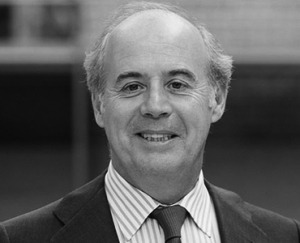
Academic Collaborator
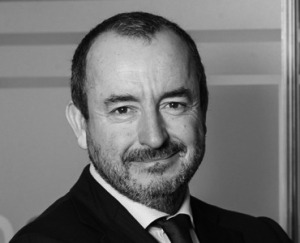
Academic Collaborator
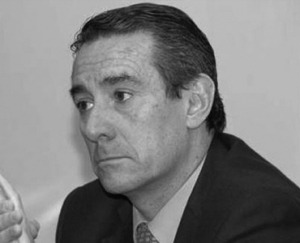
Speaker
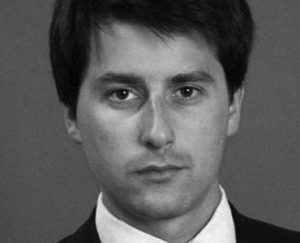
Speaker
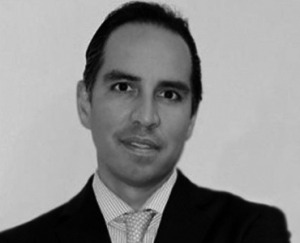
Speaker
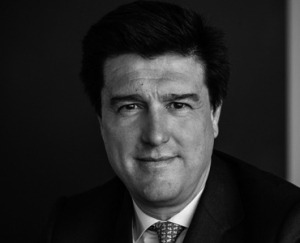
Speaker
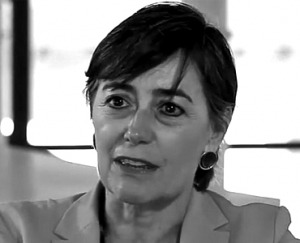
Speaker
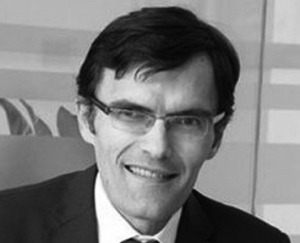
Speaker
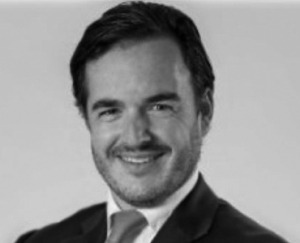
Speaker
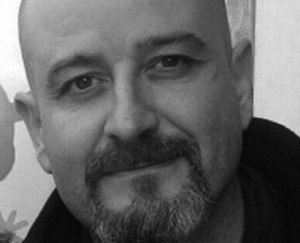
Speaker
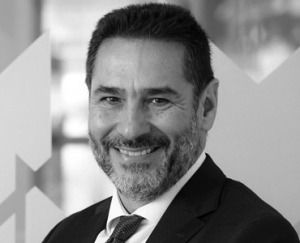
Speaker
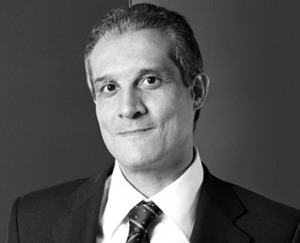
Speaker
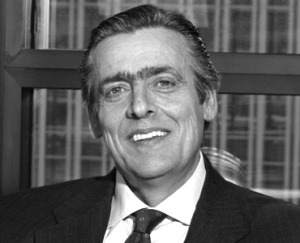
Speaker
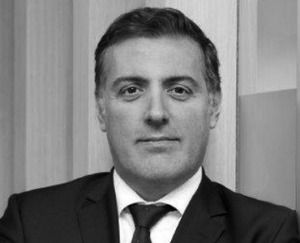
Speaker
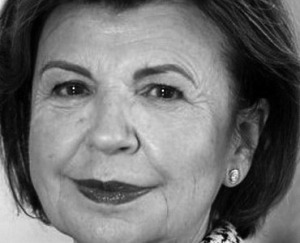
Speaker
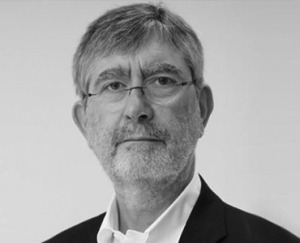
Speaker
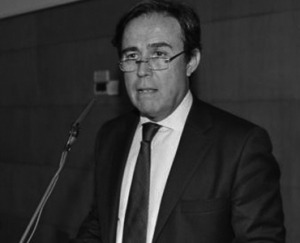
Speaker
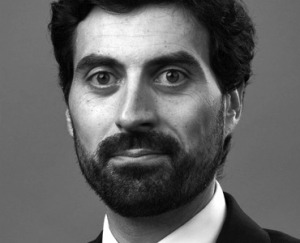
Speaker
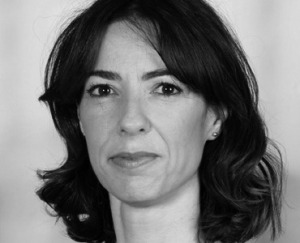
Speaker
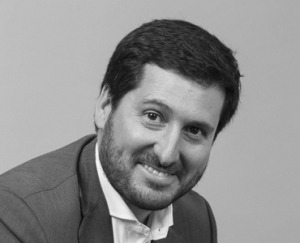
Speaker
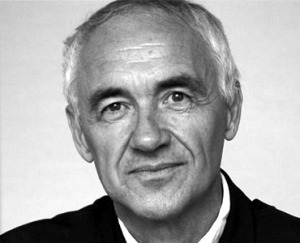
Speaker
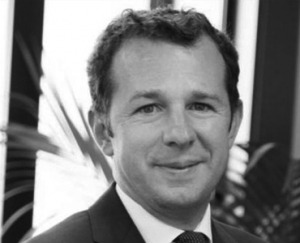
Speaker
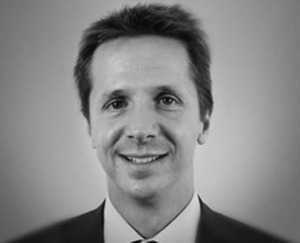
Speaker
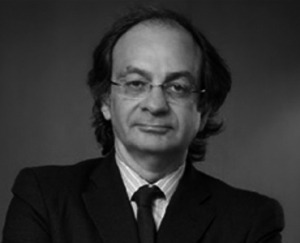
Speaker
| 08:30-09:00 | Welcome and registration |
| 09:00-09:15 | OPENING
• Prof. José Luis Suárez, Academic Director of the Meeting, IESE Business School |
| 09:15-10:15 | CHALLENGES FOR NEW RESIDENTIAL DEVELOPMENT PROJECTS
• Juan Antonio Gómez-Pintado, Chairman, Vía Célere and President, ASPRIMA, APCE Moderator: Prof. José Luis Suárez, IESE Business School |
| 10:15-10:45 | Coffee Break |
| 10:45-11:45 | COMMERCIAL REAL ESTATE AND PRODUCT DIFFERENTIATION IN THE NEW CYCLE
• Raúl González, CEO, Barceló Group Moderator: Susana Rodriguez, Partner, Consultancy Manager, Savills Aguirre Newman |
| 11:45-12:00 | ACCESS TO HOUSING
• Prof. José Luis Suárez, IESE Business School |
| 12:00-13:00 | THE REAL ESTATE INDUSTRY’S CONTRIBUTION TO SOCIETY
• Guillermo Jaime Calderón, Founder and President, Grupo MIA, Mexico Moderator: Ignacio Martos, CEO, Tinsa |
| 13:00-14:30 | Lunch |
| 14:30-15:30 | FINANCING IN A CONTEXT OF MAJOR CHANGE
• Juan Antonio Alcaraz, Managing Director, CaixaBank Moderator: Prof. Jorge Soley, IESE Business School |
| 15:30-16:30 | THE IMPACT OF THE TRANSFORMATION OF SOCIETY ON THE REAL ESTATE INDUSTRY
• Pilar Conesa, CEO Anteverti y Curadora Smart City Expo World Congress Moderator: Prof. Carles Vergara, IESE Business School |
| 16:30-17:00 | Coffee Break |
| 17:00 – 18.00 | THE FUTURE OF SPANISH REITS ON THE FIFTH ANNIVERSARY OF THE REFORM ACT
• Ismael Clemente, CEO, Merlin Properties Socimi Moderator: Prof. José Luis Suárez, IESE Business School |
| 18:00-18:15 | CLOSING
• Prof. José Luis Suárez, Academic Director of the Meeting, IESE Business School |

Nonlinear: that’s one way to describe the path of the global energy system. It has been defined by permanent interactions that comply with Newton’s laws of motion: i. the acceleration of change is directly proportional to the vector sum of forces exerted on the system and inversely proportional to its size; ii. systems tend to maintain the status quo or state of inertia; and iii. the action-reaction principle: for every action, there is always an opposite and equal reaction.
The current transition is full of turning points, contrasts and subtle nuances. In terms of climate change, the United States’ withdrawal from the Paris Agreement (COP 21) is the surprise with the most impact. Paradoxically, corporate America, including the major oil companies, is against this move. Also surprising was China’s defense of global free trade (Davos 2017) and the shift to a low-carbon society, thus closing ranks with the European Union.
It is also paradoxical that Germany is achieving its goals in terms of the market penetration of renewables, but has been unable to meet its targets for reducing carbon emissions. This is because the early gradual shutdown of its nuclear facilities is forcing the Germans to build up considerable coal power. The oddly antagonistic splits of RWE and E.ON in 2016 also deserve attention. Are these phenomena the signs of deep-seated changes in business models in preparation for the Utility of the Future? While Germany is shutting down its nuclear power plants, the United Kingdom is now implementing its own ambitious nuclear program that will enable it to gradually close down the 15 plants currently in operation and replace them with 14 GW of new nuclear generating capacity by 2035.
In terms of the energy transition, electricity systems are currently making progress toward decarbonization based on viable road maps using competitive, non-emitting technologies. This naturally forces us to address other emissions not related to electricity production and to face the real challenge of the decarbonization of transport and the reduction of our society’s energy intensity. This should be done without reducing current performance levels and by taking advantage of the enormous potential of energy efficiency, which could represent the leading source of primary energy supply compared to the present situation.
Other relevant matters requiring analysis include digitalization, which, along with disruptive technologies, is altering the status quo; regulation as an element that establishes order and drives the changes that are placing the consumer at the center of the system; geopolitics, with a special look at lithium and cobalt; and the prices and taxation of energy and coal, which are the most accurate indicators of the relevant matters in this situation.
In summary, these points provide a glimpse of part of the current energy system, which is going through profound changes driven by forces of renewal and transition. The following points will be discussed at our 15th Energy Industry Meeting:
The 15th Energy Industry Meeting, which features the theme Game Changers in the Global Energy System and is organized in partnership with Deloitte, seeks to reflect on how best to tackle the transformation of the energy system. To achieve this, relevant figures from the business world, experts and academics, along with energy policy makers and regulators at the Spanish, European and global level, will provide a coherent, well-ordered analysis of the topics that are shaping the global energy transition.
IESE Madrid
Camino del Cerro del Águila, 3
28023 Madrid
IESE Industry Meetings
tel: +34 93 253 43 36
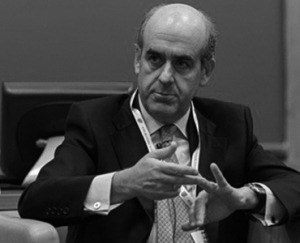
Coorganizer
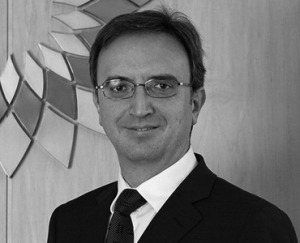
Speaker
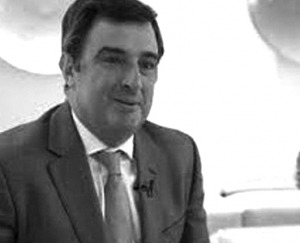
Speaker
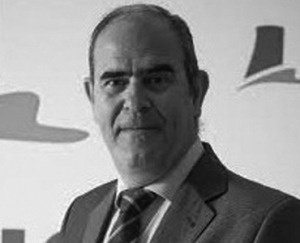
Speaker
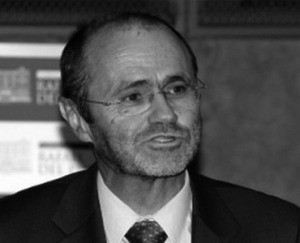
Speaker
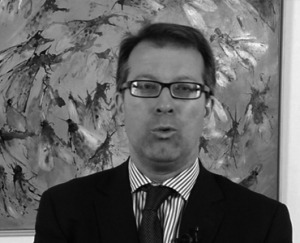
Speaker

Speaker
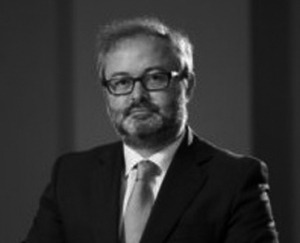
Speaker
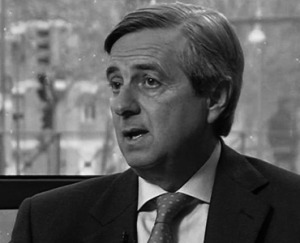
Speaker
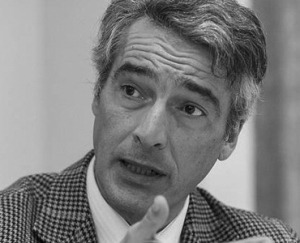
Speaker
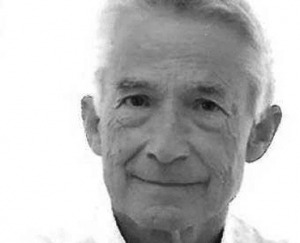
Speaker
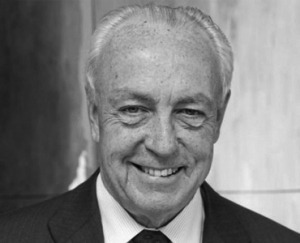
Speaker
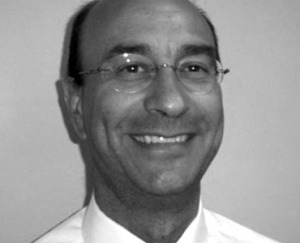
Speaker
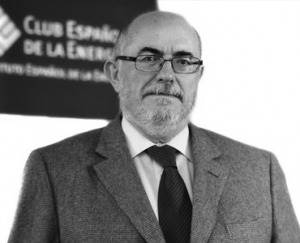
Speaker
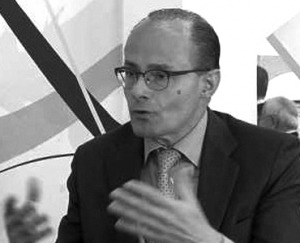
Speaker
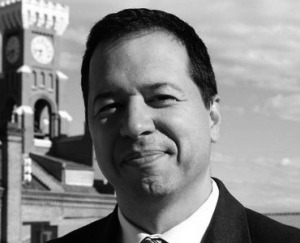
Speaker
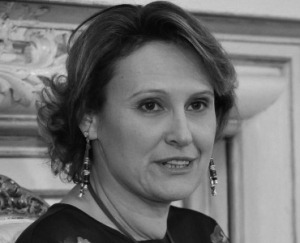
Speaker

Speaker
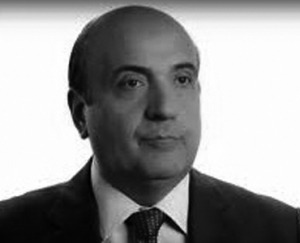
Speaker
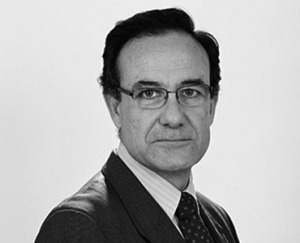
Speaker
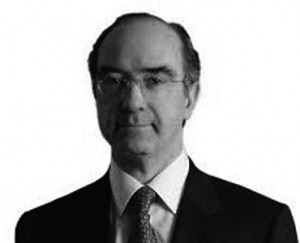
Speaker
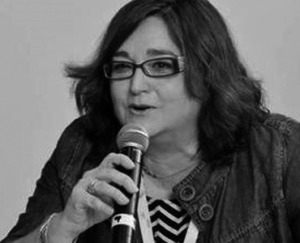
Speaker
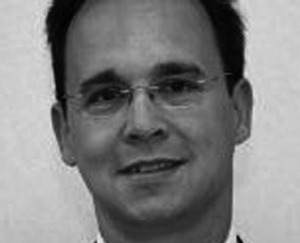
Speaker
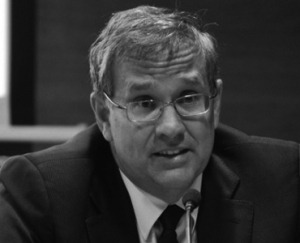
Speaker
Climate Change: Implementing the Paris Agreement and the advances made in subsequent climate conferences will be a topic for reflection, as will the United States’ withdrawal from the agreement in contrast to the commitment from China and the European Union. The transition toward a low-carbon economy will have to be adapted to and defined for each country.
Digitalization: This transition also includes the digital shift in the energy industry, which, along with new technologies and innovations, is altering the status quo. New disruptive technologies on both the supply and demand sides indicate hopeful signs of progress in terms of competitiveness and functional performance.
Regulation: The Europe Union’s Winter Package of climate legislation and Spain’s new law on energy transition. Another topic for debate will be the decisions being prepared on energy policies (coal and nuclear power, taxation, new electricity auctions).
Geopolitics: The energy industry is particularly sensitive to geopolitical issues and the evolution of international relations in terms of many different perspectives, conflicts, member states, regional organizations and geography. Furthermore, the near future could bring restrictions in the supply of strategic minerals such as lithium and cobalt. The geopolitics of lithium, cobalt and other raw materials deserve special attention. The risk of the cartelization of supply. Decision-making on nuclear energy and oil is another point to be considered in the transition policies being adopted by member states.
Prices and Taxation of Energy and Carbon: Wishful thinking is not enough to make progress with decarbonization goals. It is essential for cost indications to emerge, either through carbon pricing or the carbon tax, so the demand side can play its indispensable role. Climate change policies implemented thus far have tended to demonize the supply side and treat the members of the demand side like children, despite the fact that demand is largely responsible for the supply on offer.
| 08.30–09.00 | Reception of participants and Registration |
| 09.00–09.30 | OPENING SESSION |
| • Prof. Juan Luis López Cardenete, Academic Director of the Meeting, IESE Business School • Jesús Navarro, Partner, Deloitte Spain and Coorganizer |
|
| 09.30–11.00 | CLIMATE CHANGE |
| Implementing the Paris Agreement and the advances made in subsequent climate conferences will be a topic for reflection, as will the United States’ withdrawal from the agreement in contrast to the commitment from China and the European Union. The transition toward a low-carbon economy will have to be adapted to and defined for each country.
Moderator: Alberto Amores, Leading Partner of the E&R Corporate Strategy Practice, Monitor Deloitte |
|
| 11.00–11.30 | Coffee Break |
| 11.30–13.00 | GEOPOLITICS |
| The energy industry is particularly sensitive to geopolitical issues and the evolution of international relations in terms of many different perspectives, conflicts, member states, regional organizations and geography. Furthermore, the near future could bring restrictions in the supply of strategic minerals such as lithium and cobalt. The geopolitics of lithium, cobalt and other raw materials deserve special attention. The risk of the cartelization of supply. Decision-making on nuclear energy and oil is another point to be considered in the transition policies being adopted by member states.
Moderator: Prof. Juan Luis López Cardenete, IESE Business School |
|
| 13.00–13.15 | Break |
| 13.15-14.45 | PRICES AND TAXATION OF ENERGY AND CARBON |
| Moderator: Jesús Navarro, Partner, Deloitte Spain Lecturer: Nemesio Fernández-Cuesta, Former State Secretary for Energy Speakers: • Julio Castro, Executive Vice President Regulation, Iberdrola Group • José María Egea, Managing Director of Energy Planning, Gas Natural Fenosa • Pedro Antonio Merino, Chief Economist, Repsol |
|
| 14.45–16.00 | Lunch |
| 16.00–17.15 | REGULATION |
| The Europe Union’s Winter Package of climate legislation and Spain’s new law on energy transition. Another topic for debate will be the decisions being prepared on energy policies (coal and nuclear power, taxation, new electricity auctions).
Moderator: Marina Serrano, President, UNESA |
|
| 17.15–17.30 | Break |
| 17.30–18.45 | DIGITALIZATION: TRANSFORMATION AND CHALLENGES |
| This transition also includes the digital shift in the energy industry, which, along with new technologies and innovations, is altering the status quo. New disruptive technologies on both the supply and demand sides indicate hopeful signs of progress in terms of competitiveness and functional performance.
Moderator: Arcadio Gutiérrez Zapico, General Director, Enerclub |
|
| 18:45–19:15 | CLIMATE, GEOPOLITICS, MARKET, TECHNOLOGY AND REGULATION IN THE ENERGETIC TRANSITION |
| Debate with participants around the core ideas discussed during the conference
Moderators: |

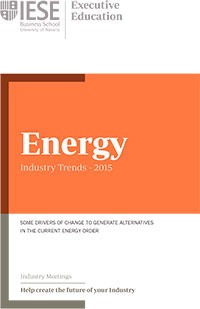
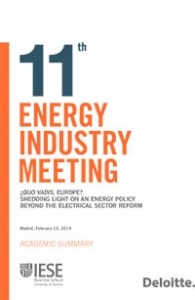
2017 · Energy Architecture in Transition
2016 · Human Well-being, Growth and Energy Access: New Governance for a Unique Challenge
2015 · The Future of Energy: Who Calls the Shots?
2014 · Quo Vadis, Europe? Shedding Light on an Energy Policy beyond the Electrical Sector Reform
2013 · A New Energy Policy as a Global Paradigm Shift Emerges
2011 · The Impact of the Energy Policy on the Sector’s Competitiveness
2009 · A Debate on the Spanish Energy Sector
2004 · Energy Liberalization and Consolidation in Europe
2002 · A Shift Towards the Convergence of Energy Markets
2000 · Mergers and Strategic Alliances: The Creation and Conquest of the Future
This could be a decisive year for the Spanish insurance industry.
First of all, the Insurance Distribution Directive will impact customer relations through an emphasis on protection and transparency.
Furthermore, new technologies will continue to affect how companies operate and interact with customers. These technologies may in fact generate new risks and therefore new insurance products.
The cybersecurity business is becoming increasingly important, especially in the financial, technology, healthcare and retail sectors.
Within the context of reorganizing and streamlining supervisory bodies in the institutional context, there has been talk of making the General Directorate of Insurance an independent administrative authority.
Finally, another point for discussion at the Industry Meeting will be longevity risk and how it can be handled in life and health insurance policies.
All these topics will be analyzed at the 8th Insurance Industry Meeting organized by IESE-CIF with the collaboration of EY.
The Meeting will offer a wealth of new information to those who work in the insurance industry, and also to companies, individuals and insurance customers who want to know more about the workings of these financial services providers.
Once again, the 2018 Industry Meeting will mark a turning point in the Spanish insurance industry.
IESE Madrid
Camino del Cerro del Águila, 3
28023 Madrid
IESE Industry Meetings
tel: +34 93 253 43 36
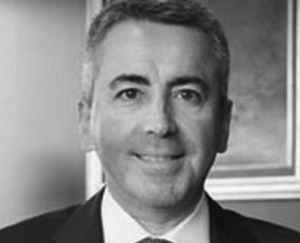
Speaker
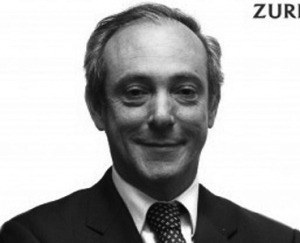
Speaker

Speaker
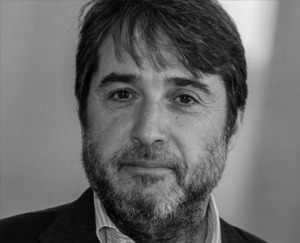
Speaker
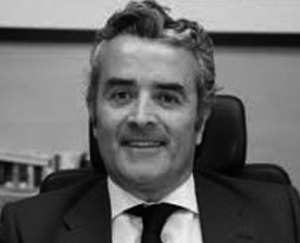
Speaker
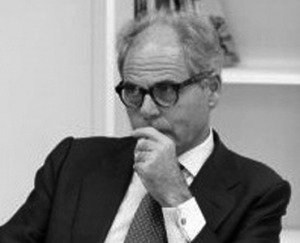
Speaker
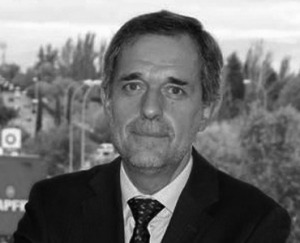
Speaker
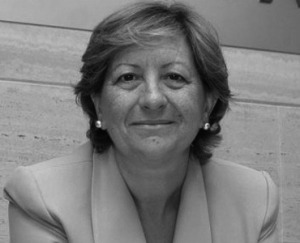
Speaker
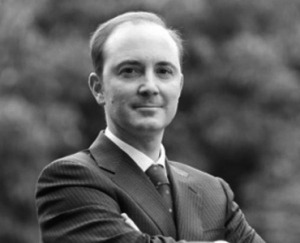
Speaker
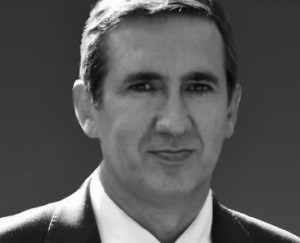
Speaker

Speaker
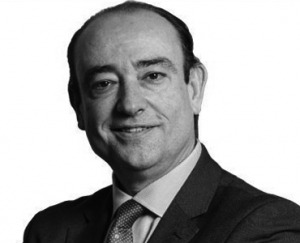
Speaker
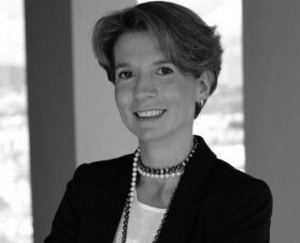
Speaker

Speaker
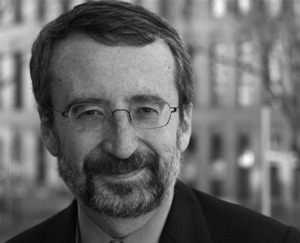
Speaker

Speaker

Speaker
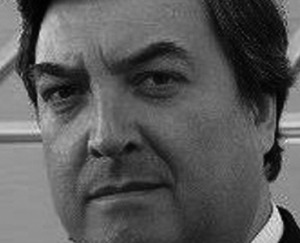
Speaker

Speaker
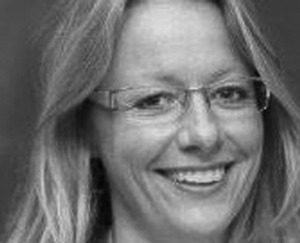
Speaker
| 08:30-09:00 | Welcome and Registration |
| 09:00-09:15 | INTRODUCTION
• Prof. Jorge Soley, Academic Director of the Meeting, IESE Business School |
| 09:15-10:00 | THE NEW SPANISH SUPERVISORY STRUCTURE
• Sergio Álvarez Camiña, Director General, General Directorate of Insurance and Pensions Funds, Ministry of the Economy, Industry and Competitiveness Moderator: Prof. Jorge Soley, IESE Business School |
| 10:00-10:45 | CONSUMER PROTECTION FROM EUROPEAN INSURANCE AUTHORITIES
• Katja Wuertz, Head of EIOPA´s Consumer Protection Department Moderator: Prof. Jorge Soley, IESE Business School |
| 10:45-11:30 | IMPACT OF DIGITALIZATION ON INSURANCE BUSINESS
• Aleix Valls, Senior Digital Advisor, Zurich Spain Moderator: Arturo Derteano, Partner, EY Spain |
| 11:30-12:05 | Coffee Break |
| 12:15-13:15 | HOW TO DEAL WITH THE NEW INSURANCE DISTRIBUTION DIRECTIVE? (IDD)
• Susana Mendía, Director of Life, Health and Asset Management, Allianz Moderator: Prof. Joan Fontrodona, IESE Business School |
| 13:15-14:30 | LONGEVITY AND INSURANCE
• Iñaki Ereño, CEO in Europe and Latam, Grupo Bupa/Sanitas Moderator: Manuel Martínez Pedraza, Partner, EY Spain |
| 14:30-15:45 | Lunch |
| 15:45-16:45 | NEW INSURANCE FRAMEWORK
• Vicente Cancio, CEO, Zurich Spain Moderator: Prof. Javier Santomá, IESE Business School |
| 16:45-17:30 | TRUST AND SECURITY IN THE NEW DIGITAL ENVIRONMENT
• Guillermo Llorente, Corporate Security and Environment, Mapfre Moderator: Julio San José, Partner, EY Spain |
| 17:30-18:00 | THE ECONOMIC AND FINANCIAL CONTEXT
• Prof. Juan José Toribio, IESE Business School |
| 18:00-18:15 | CONCLUSIONS
• Prof. Jorge Soley, Academic Director of the Meeting, IESE Business School |
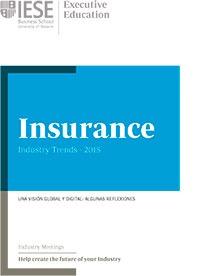
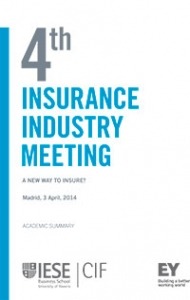
2017 · Rethinking strategies in the Insurance Business
2016 · Insurance Companies: Strategies for the Future
2015 · Insurance Companies in a Global Context: Challenges and Opportunities
2014 · A new way to Insure?
2013 · Key times: an industry in transformation
2012 · El futuro de la industria del seguro en España
2011 · Oportunidades y riesgos después de Solvencia II
In the food and beverage industry, all companies are under permanent positive pressure, independently of their position on the value chain, due to the industry’s responsibility to society, which is not only seen from a customer-consumer perspective, but also from the issues that affect it, such as: how to feed a growing population based on nutrition and sustainability; how to define and transform world food systems; and how to promote innovation ecosystems with the opportunities offered by technological progress, Industry 4.0, smart data and intelligent and preventive nutrition.
In this context, food and beverage companies and industry leaders need to implement the right strategy to handle these challenges throughout the industry ecosystem. This strategy must operate at the speed of the digital era and be equipped with business models that respond to the expectations and demands of consumers, who are increasingly more informed, digitized, and aware of the close relationship between Food, Health and Well-being.
In short, society and people expect answers from this industry that help them improve their quality of life and their future. This is perhaps the industry’s greatest strength and driving force, and what gives it the initiative for constant innovation and research, as well as sustainable and responsible growth.
In the upcoming edition of the Food and Beverage Industry Meeting, organized with Deloitte, we will discuss the current ”state of play”, as well as future topics and scenarios. We will be joined by entrepreneurs, directors and academics, who will speak on Economics and Geopolitics, Innovation Ecosystems, the Future of Food, Consumer Habits and Expectations, Nutrition, Strategy and Business Models.
The Industry Meeting will be held on Tuesday, May 29, 2018 and will be preceded by a forum for entrepreneurs and investors at FoodTech on Monday, May 28.
IESE Barcelona
Arnús i Garí, 3-7
08034 Barcelona
IESE Industry Meetings
tel: +34 93 253 43 36
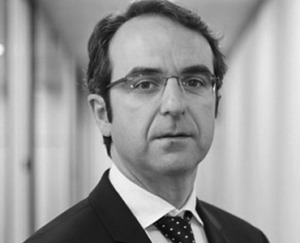
Collaborating Director
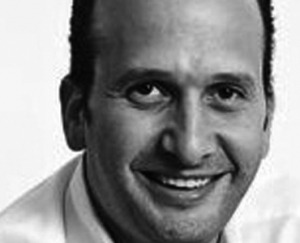
Speaker
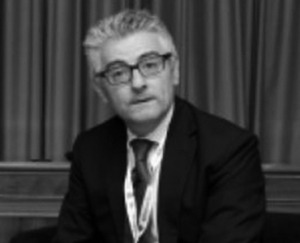
Speaker
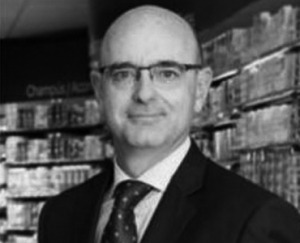
Speaker
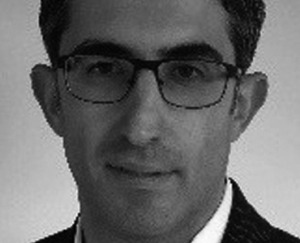
Speaker
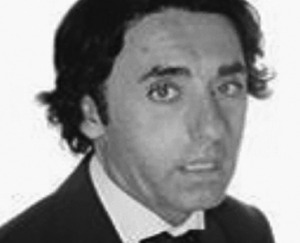
Speaker
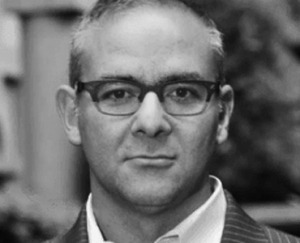
Speaker
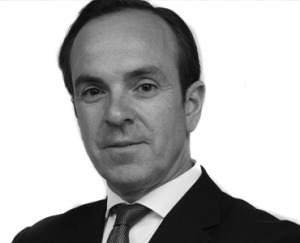
Speaker
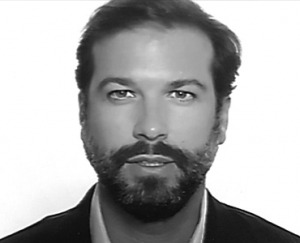
Speaker
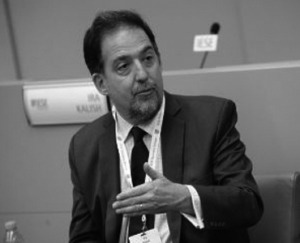
Speaker

Speaker
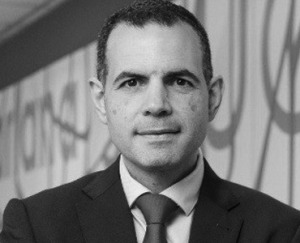
Speaker
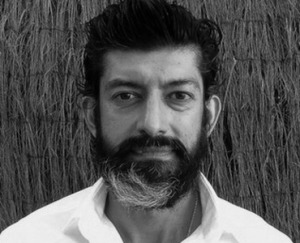
Speaker
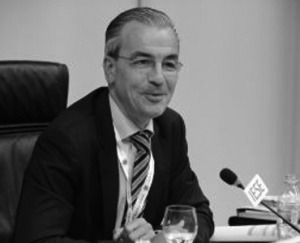
Speaker
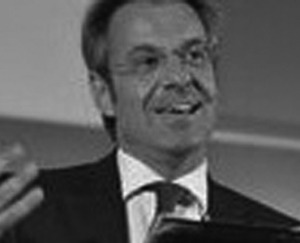
Speaker
| 09:00–09:15 | WELCOME
• Prof. Adrián Caldart, Academic Director of the Meeting, IESE Business School |
| 09:15–10:30 | ECONOMICS AND GEOPOLITICS
World economic activity continues to firm up and recent IMF reports confirm that world economic recovery is a fact, as illustrated by its world economic outlook projections for 2018 and 2019 of estimated 3.9% growth. In the short term, these fine prospects appear to face balanced risks, but certain noneconomic factors should not be overlooked, such as isolationist policies and geopolitical tension. • Ira Kalish, Chief Global Economist, Deloitte Moderator-speaker: Prof. Antonio Argandoña, IESE Business School |
| 10:30–11:30 | INDUSTRY STATUS AND CHALLENGES
• José Mª Bonmatí, Managing Director, AECOC Moderator: Prof. Adrián Caldart, IESE Business School |
| 11:30–12:00 | Coffee-Break |
| 12:00–13:00 | GLOBAL FOOD SYSTEM SCENARIOS
Given today’s major challenges of demographic growth, technological innovation, urbanization, the energy transition as an unprecedented social change, it is essential for the food and beverage industry to carefully study the many different scenarios that could arise in the future. This session will provide a chance to reflect on potential scenarios in the medium and long term, based on the priority factors and decisions of the present. • Shay Eliaz, Principal, Monitor Deloitte Moderator: Prof. Mike Rosenberg, IESE Business School |
| 13:00–14:15 | INNOVATION ECOSYSTEMS: ENTREPRENEURS, STARTUPS AND COMPANIES
One strategic topic for companies in the food and beverage industry is innovation and the different management models designed to foster it. Besides making use of their own in-house talent, R&D management and intrapreneurship opportunities, companies are increasingly pursuing cooperation with a range of different ecosystem players, including startups, entrepreneurs and research centers. New collaboration configurations are emerging between spinoffs, established companies and startups. Companies are also creating their own specialized startup units through accelerators that fill knowledge gaps and provide access to innovations, new technologies and new ways of doing and seeing things. Networks and ecosystems for collaboration and innovation are expanding connections between investors, companies, entrepreneurs and startups. • Alberto Benbunan, Founder of Mobile Dreams Factory, DelSúper, Gelt and Super Robotics Moderator: Fernando Pasamón, Partner, Deloitte |
| 14:15–15:30 | Lunch |
| 15:30–16:30 | NUTRITION
Research and observational studies have shown that nutrition is a crucial factor in people’s well-being and health. Precision nutrition, personalized nutrition and preventive nutrition are some of the concepts that illustrate the importance of nutrition in the food and beverage industry and its close ties to the area of disease prevention, public health and social policy. • Prof. Miguel Ángel Martínez-González, University of Navarra Moderator: Raimon Ripoll, Partner, Deloitte |
| 16:30–17:45 | WHAT CONSUMERS WANT FROM RETAIL
Concepts such as convenience, sustainability and omnichannel availability will be key in the distribution industry’s attempts to understand and cater to its informed, hyperconnected consumers, who are increasingly more aware of what they are buying and consuming. This has led to a rise in neighborhood and convenience stores and city supermarkets featuring longer opening hours in keeping with city life and a wide selection of products with transparent information on their origin and nutritional value. Consumers want an experienced distributor and look for the signs to identify with it. • Ignacio Cobo, Director General Supermercados, Carrefour Moderator: Prof. Jaume Llopis, IESE Business School |
| 17:45–18:00 | Break |
| 18:00–19:00 | STRATEGY AND BUSINESS MODELS
International expansion based on setting up foreign subsidiaries has always been challenging in terms of management and leadership. Some basic requirements for success include choosing the right partners and target buyers, being able to adapt the value proposal to different domestic markets, choosing leaders for international operations and taking advantage of size-based synergies. Of particular interest in this situation are Spanish companies that have been successful outside the European Union in highly demanding markets such as North America, and in emerging regions such as the African continent. • Bernardo Coca, General Manager BU B2B & Russia/CIS (ex-Strategy Director), GB Foods Moderator: Prof. Adrián Caldart, IESE Business School |
| 19:00–19:15 | CLOSING SESSION
• Prof. Adrián Caldart, Academic Director of the Meeting, IESE Business School |
The fees for the 22 Food and Beverage Industry Meeting are:
General
IESE Alumni
IESE Members and Partners
Fee includes lunch.
Payment must be made prior to program attendance.
Places are limited and registrations are processed in strict order of receipt.


2017 · Sustainable Growth Strategies: Challenges and Opportunities
2016 · A Global, Creative Look at Growth, New Markets and Change
2015 · The Road to 2025 and Beyond
2014 · The Four I-Engines of the Industry
2013 · Selling Across Continents
2012 · Growth in the recession. Examples for industry and retail
2011 · In search of added value: how to get consumers, margins and competitiveness back
2010 · Food wars: counterattack brands. Rebuilding the industry’s future
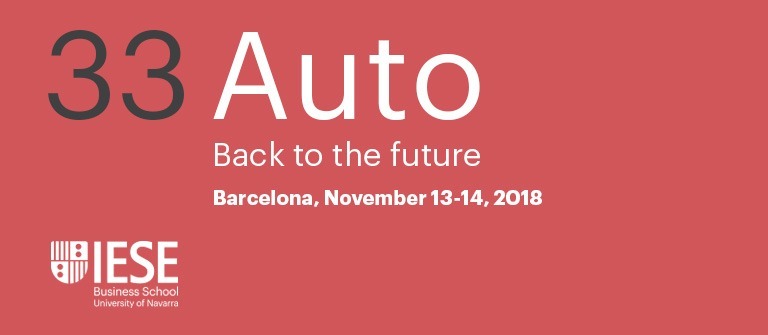
During the past 130 years, the automotive industry has gone through several significant changes. The current regulator-led initiatives towards electric mobility and new business models are an example of this: at the very beginning of the 20th century, electric cars played a major role in cities like New York, Paris or Berlin. Back then, just like now, it was difficult to predict how the world of mobility would look like in the future. Then, in a very short time between 1904 and 1914, the automotive industry changed completely. Electric cars disappeared, being replaced by cars driven by internal combustion engines, networks of gasoline stations and an expanding network of roads and highways. Companies like Ford and GM took over the reign of the industry by introducing new manufacturing methodologies like mass production and new management principles like planned obsolescence. What lessons can we learn by looking back to the early 20th century? What are the implications for the automotive value chain and its many constituents? Are we looking at “Back to the future”?
In this year’s 33rd edition of our annual meeting of the automotive industry, IESE AUTO, we hope to shed some light on these questions while also addressing the issues related to the Spanish, European and global markets. We will continue our tradition of providing a premier platform for senior executives from the automotive industry, industry experts and leading academics to exchange ideas about the future of the “industry of industries”.
IESE Barcelona
Arnús i Garí, 3-7
08034 Barcelona
IESE Industry Meetings
tel: +34 93 253 43 36

Founding Chair
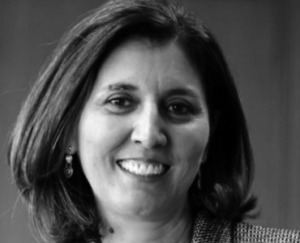
With the expert contribution of
| 08:30-09:00 | Welcome and Registration |
| 09:00-09:15 | WELCOME
• Prof. Dr. Marc Sachon, Chairman IESE AUTO, IESE Business School |
| 09:15-09:45 | OPENING LECTURE: “BACK TO THE FUTURE”
• Prof. Dr. Marc Sachon, Chairman IESE AUTO, IESE Business School |
| 09:45-10:30 | BUILDING AN AMBIDEXTROUS ORGANIZATION, A CASE IN PRACTICE
Ambidextrous organization as an ongoing transformation engine for a rapid changing environment. Automotive is facing simultaneously three major disruptions related to electrification, urbanization and digitalization. This changing environment demands agile responses for companies who are forced to exploit traditional business model while at the same time develop innovative new ones. • Francisco J. Pérez Botello, CEO, Volkswagen Group España Distribución Moderator: Prof. Dr. Marc Sachon, IESE Business School |
| 10:30-11:00 | PARADIGM SHIFT: TECHNOLOGICAL DISRUPTION AND NEW FORMS OF MOBILITY
• Germán López Madrid, Senior Advisor, Volvo Car Corporation and President, ANIACAM Moderator: Prof. Dr. Pedro Nueno, IESE Business School |
| 11:00-11:30 | Coffee break |
| 11:30-12:30 | PREPARING FOR THE DIGITAL TRANSFORMATION
The transformation that is taking place at all levels of business is an inevitable process. As companies, we are responsible for helping employees acquire the qualifications they need to carry out new tasks. The trade union cause is also being transformed by the arrival of new digital media. During this session, we will talk about all the ways in which we must adapt to the transformation of companies. • Xavier Ros, Member of the Board and Executive Vice-President Human Resources, SEAT Moderator: Prof. Dr. Marc Sachon, IESE Business School |
| 12:30-13:00 | SPAIN: THE SUPPLIERS’ PERSPECTIVE
• María Helena Antolin, President, Sernauto Moderator: Prof. Dr. Marc Sachon, IESE Business School |
| 13:00-14:15 | Lunch |
| 14:15-15:15 | CAR FACTORIES: CONCEPTS, PROCESSES AND TECHNOLOGY IN THE 21ST CENTURY?
How successful strategy, product and process development is linked to company culture and competence management Addressing the Dynamic Market: A Modular and Transferable Approach to Electric Mobility • Dr. Andreas Fink, Head of Electric Traction Drive, ZF Friedrichshafen AG Moderator: Prof. Dr. Marc Sachon, IESE Business School |
| 15:15-16:15 | DIGITALIZING RETAIL: LEARNING FROM OTHER SECTORS
The Seamless Customer Journey: Analog meets Digital • Thomas Steckenborn, CEO, CEMA AG Moderator: Prof. Dr. Marc Sachon, IESE Business School |
| 16:15-16:45 | Coffee break |
| 16:45-17:15 | SPAIN: THE DEALERS’ PERSPECTIVE
• Gerardo Pérez, President, FACONAUTO Moderator: Prof. Dr. Marc Sachon, IESE Business School |
| 17:15-18:00 | GEOPOLITICS & AUTOMOTIVE
Geopolitical Factors and the Global Automotive Industry • Begoña Cristeto, Partner, KPMG in Spain |
| 18:00-19:00 | IESE CASE DISCUSSION
This session will allow participants to engage in an active discussion of a current topic in the automotive industry. • Prof. Dr. Marc Sachon, IESE Business School |
| 19:00-20:30 | To end the day, participants are cordially invited to attend the “Networking & Tapas” |
| 09:00-10:20 | THE FUTURE OF THE INDUSTRY FROM CIAC’S PERSPECTIVE
Among its many other functions, the Automotive Industry Cluster of Catalonia (CIAC) assumes the role of observer of technological trends in the industry so they can be applied in its associate companies. This function forms part of the cluster’s main mission: to help companies become more competitive. The session will provide three examples of how the CIAC promotes cooperation projects. Speaker and moderator: Josep Mª Vall, Presidente, CIAC Stamping 4.0 Exoskeletons Drones in Automotive Industry |
| 10:20-11:00 | Coffee break and visito to CIAC’s innovation corner |
| 11:00-11:45 | INNOVATION IN SALES: SALESFORCE IN AUTOMOTIVE
The future of automotive sales will seamlessly tie together digital and physical touch points by OEMs and dealers: from lead generation to dealer engagement to after-sales and mobility services. We will look into concrete automotive cases, share an end-to-end OEM vision and take inspirational trends from other industries like travel and retail. • Fernando Ranz, Regional VP, Salesforce Moderator: Prof. Dr. Marc Sachon, IESE Business School |
| 11:45-12:15 | THE CORPORATE MANAGEMENT OF MOBILITY DEMAND: THE NEW CHALLENGES
• José María Cánovas del Castillo, Co-founder and CEO, Taksee Moderator: Prof. Dr. Marc Sachon, IESE Business School |
| 12:15-13:15 | INNOVATION IN THE AUTOMOTIVE SECTOR BEYOND THE PRODUCT AND PRODUCTIVE PROCESSES
• Luis Buzzi, Responsible of KPMG Innova Valley and Partner of MC in Catalonia, KPMG in Spain |
| 13:15-13:45 | SPAIN: OEM STATUS QUO & OUTLOOK
• Mario Armero, Executive Vice-President , ANFAC Moderator: Prof. Dr. Marc Sachon, IESE Business School |
| 13:45-14:00 | CLOSING
• Prof. Dr. Marc Sachon, Chairman IESE AUTO, IESE Business School |
The fees for the 33 Auto Industry Meeting are:
General
IESE Alumni
IESE Members and Partners
Fee includes lunch.
Payment must be made prior to program attendance.
Places are limited and registrations are processed in strict order of receipt.
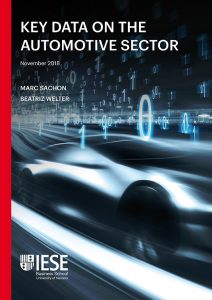



2017 · The age of turbulence
2016 · The Battle of Automotive
2015 · The Next 30 Years
2014 · Why Automobile
2013 · Two worlds, two speeds?
2012 · Tectonic Shifts
2011 · Megatrends in the Automotive Industry
2010 · Reinventing the Industry
2009 · The Automotive Industry in 2020
2008 · The Automotive Industry in the 2010’s: The Critical Decade?
2007 · Managing Global Uncertainty
2006 · Sustainability of the Automotive Industry in Europe
2005 · Competition and Cooperation
2004 · Back to Basics
2003 · Looking to the Future with Imagination
2002 · Competing Out of Confusion
2001 · Tightening the Screws
2000 · Consequences of Consolidation
1999 · Gods, Tombs, Brands and Experts
1998 · Another Call for Attention
1997 · Entering the 21st Century: The New Trends
1996 · East and West, the Challenge for Europe
1995 · Balance, Present and Future
1994 · How to Face the Recovery?
1993 · Where are we Going?
1992 · The End/Beginning of the Countdown
1991 · Building Up from the Crisis
1990 · Learning Organizations, Change and Innovation. Routines of the 90’s
1989 · A Call for Attention
1988 · Towards 1992: Single Market Consolidation
1987 · The Value-Added Chain in the Automotive Sector
1986 · The Future of the Automotive Sector
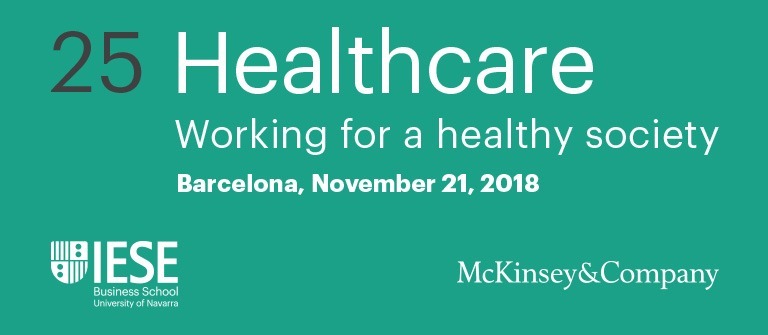
Being healthy is a lot more than not being sick. Doctors, hospitals, patients, pharma companies, tech firms, medical device makers, academics, public policymakers, insurance companies and entrepreneurs are all working together to build a healthier society. With the world’s healthcare systems being transformed by resource depletion and an aging population, patients have become consumers with choices, there has been a shift from volume-based to value-based healthcare, and prevention is now on more equal footing with treatment. At the same time, digital transformation is also sweeping through the healthcare industry, where the disruptive innovations of new entrants are expected to upset the traditional marketplace. What kind of partnerships will allow for continued innovation? How do we build a new business model that drives the shift to value-based healthcare? How can we embrace strategies that keep pushing the envelope in healthcare technology? How will blockchain and artificial intelligence impact healthcare? In other words, what groundwork must be done today to continue building healthy societies?
The Industry Meeting offers top executives in healthcare firms, healthcare professionals, academics and field experts a distinguished platform to share their experience and insight on the industry’s current situation and its future, and to continue the search for innovative ways to respond to the enormous challenges faced by the healthcare industry.
IESE Barcelona
Arnús i Garí, 3-7
08034 Barcelona
IESE Industry Meetings
tel: +34 93 253 43 36
| 08:30-09:00 | Welcome and Registration |
| 09:00-09:30 | WELCOME AND OPENING
• Mireia Rius, Associate Dean for Executive Education, IESE Business School |
| 09:30-10:00 | GLOBAL ECONOMIC OUTLOOK AND IMPLICATIONS FOR HEALTHCARE
What is next in the Global Economy? Global growth seems to have peaked and risks are on the downside. Moreover, there are underlying trends such as ageing or technology that are reshaping not only our economies but also our societies. What does this all mean for the future of healthcare? • Prof. Núria Mas, IESE Business School |
| 10:00-10:45 | THE FUTURE IS PROMOTING HEALTH: IMAGING, GENETICS AND BEHAVIOUR
• Dr. Valentín Fuster, Physician-in-Chief and Director of Mount Sinai Heart Center, The Mount Sinai Medical Hospital (New York) and General Director, Centro Nacional de Investigaciones Cardiovasculares (CNIC Madrid) Moderator: Prof. Núria Mas, IESE Business School |
| 10:45-11:30 | PANEL I. WORKING FOR A HEALTHY SOCIETY. A 25 YEARS PERSPECTIVE
Most of our present healthcare systems were built in the middle of last century. During this time there has been a tremendous progress in medical diagnosis, treatments and care delivery. But, what does the future hold for healthcare? What fundamentals should we build today to continue contributing to build healthier societies? • Josep Gatell, CEO, Swan Medical Moderator: Prof. Pedro Nueno, IESE Business School |
| 11:45-12:15 | Coffee break |
| 12:15-12:20 | Brief welcome from Prof. Franz Heukamp, Dean, IESE Business School |
| 12:20-13:20 | PANEL II. ACCELERATING THE DISRUPTION IN THE SYSTEM
When it comes to innovation, healthcare presents a paradox. Breakthrough medical treatments come at a rapid peace but changes in the way in which we organize healthcare are coming much more slowly. But many forces that have already accelerated other industries are starting to appear in healthcare. Is the disruption in the system accelerating? How should we prepare for it? • Adolfo Fernández-Valmayor, Director of Transformation and CIO, Quirónsalud Moderator: Dr. Angela Spatharou, McKinsey & Company |
| 13:20-14:20 | PANEL III. A NEW BUSINESS MODEL FOR SUSTAINABLE HEALTHCARE
Population ageing, globalization and new technologies are reshaping the healthcare reality. Which are the new business models to adjust to this rapidly changing world? • Nabil Daoud, Presidente, Lilly España Portugal y Grecia Moderator: Prof. Jaume Ribera, IESE Business School |
| 14:20-15:30 | Lunch |
| 15:30-16:15 | KEYNOTE SPEAKER: REIMAGINING HEALTHCARE SUPPORTED BY DIGITAL TECHNOLOGIES
Healthcare impacts us all and until recently, it has predominantly been about curing specific ailments or chronic challenges. Emerging technologies including artificial intelligence, cognitive computing and blockchain, are driving disruption and the emergence of ecosystems. Innovations across the healthcare ecosystem will allow for the seamless orchestration of health, wellness and treatment of chronic disease from cradle to the grave. And it will do so affordably, individually, and at scale. • Heather Fraser, Global Lead for Life Sciences and Healthcare, IBM Institute for Business Value Moderator: Prof. Núria Mas, IESE Business School |
| 16:15-16:30 | Break |
| 16:30-17:30 | PANEL IV. INNOVATION, TECHNOLOGY AND BIG DATA IN HEALTHCARE
How can big data help drive innovation in healthcare? How can digital health innovation help us transform the patient care experience? How can we leverage technology an innovation to continue building healthy societies? • Dr. Penny Dash, McKinsey Healthcare Western Europe Moderator: Prof. Núria Mas, IESE Business School |
| 17:30-18:00 | FINAL THOUGHTS
• Prof. Núria Mas, Chair Healthcare Industry Meeting, IESE Business School |
| 18:00 | CLOSING
• Humberto Arnés, General Manager, Farmaindustria |
The fees for the 25 Healthcare Industry Meeting are:
General
IESE Alumni
IESE Members and Partners
Fee includes lunch.
Payment must be made prior to program attendance.
Places are limited and registrations are processed in strict order of receipt.



2017 · Building a Sustainable Healthcare Model
2016 · Towards Value-Based Healthcare
2015 · Innovation for the New Healthcare Era
2014 · Propelling Change
2013 · Making Patient-Centric Care Happen
2012 · Value Creation and Value Sharing
2011 · Toward a Change of Model
2010 · The Healthcare Industry in 2020
2009 · Toward a New Model of Industry (Pharma) / Recognizing Value (Healthcare)
2008 · Betting on the Sector (Pharma) / Innovating With Responsibility (Healthcare)
2007 · The Global Opportunity
2006 · Contributing More (Pharma) / The Value of Technology (Healthcare)
2005 · Healing Under Pressure
2004 · Rethinking Health
2003 · Health Technologies and the Management of Health Budgets
2002 · Key Variables for Consideration
2001 · Whither the Spanish Health System?
2000 · The Market for Medical Devices in the European Union
1999 · New Millennium, New Challenges
1998 · Health Reform in Practice: New Ways to Buy and Sell
1997 · Economic Limits of Health Since 1998
1996 · Spanish Health: Reality, Change and Adjustment
1995 · Present and Future
1994 · Building From the Crisis
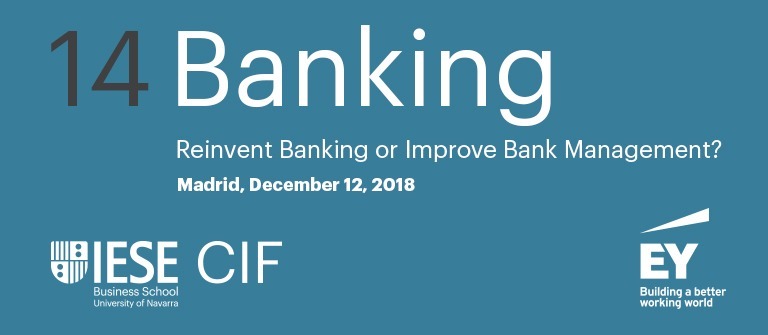
Banks have had to struggle with major challenges in the last ten years, mainly linked to the legacy of the financial crisis, but also due to decisive changes in the economic, technological, social and demographic context.
Banks have therefore been adjusting their operating models through strategies aimed at cleaning up their balance sheets, adapting to new regulatory frameworks, streamlining their lines of business, regaining profitability and embracing digital transformation. Additionally, equally demanding challenges for the banking industry appear on the immediate horizon, especially in the form of the revolution in technology, the rise of fintechs and major digital platforms, the culmination of the regulatory reform, and increased competition from capital markets.
This list can easily be expanded to include growing economic, financial and geopolitical factors, as well as the need to continue strengthening society’s trust.
All these factors seem to reflect the need to take a new approach to the very essence of the banking industry or at least to adopt significant changes in bank management.
To reflect on these issues, IESE-CIF is organizing the 14 Banking Industry Meeting in collaboration with EY. Regulators, academics, consultants and senior executives from the banking industry will have the opportunity to exchange views on a panorama that is as challenging as it is exciting.
IESE Madrid
Camino del Cerro del Águila, 3
28023 Madrid
IESE Industry Meetings
tel: +34 93 253 43 36
| 08:30-09:00 | Welcome and registration |
| 09:00-09:15 | INTRODUCTION
• Prof. Juan José Toribio, President, IESE-CIF (Center for International Finance) |
| 09:15-09:45 | OPENING SESSIOn
• Pablo Hernández de Cos, Governor, Banco de España |
| 09:45-10:30 | DIGITAL TRANSFORMATION: A GAME CHANGER FOR MANAGEMENT
• Carlos Torres Vila, CEO, BBVA Moderator: Arturo Derteano, Partner, EY España |
| 10:30-11:15 | BANKS, FINTECHS AND PLATFORMS: REINVENTING THE FUTURE
• Prof. Jorge Soley, IESE Business School |
| 12:00-12:30 | Pausa-Café |
| 12:30-13:15 | SUSTAINABILITY AND PROFITABILITY: EVOLVING BUSINESS MODELS
• Jaime Guardiola, CEO, Banco Sabadell Moderator: Mario Delgado, Partner, EY España |
| 13:15-14:00 | TODAY’S SITUATION WITH FEWER BANKS AND THE BANKING MAP OF TOMORROW
• José Sevilla, CEO, Bankia Moderator: Francisco Velasco, Partner, EY España |
| 14:00-14:45 | SPANISH BANKING: THE INTERNATIONAL BRAND
• José Mª Abad, Executive Director, Goldman Sachs Moderator: Prof. Miguel Duro, IESE Business School |
| 14:45-16:00 | Lunch |
| 16:00-16:45 | THE ECONOMIC AND FINANCIAL HORIZON
• Prof. Juan José Toribio, IESE Business School |
| 16:45-17:30 | STRATEGIC APPROACHES FOR THE DIGITAL ERA
• Gonzalo Gortazar, Chief Executive, CaixaBank Moderator: Prof. Jorge Soley, IESE Business School |
| 17:30-18:15 | IS IT TIME TO REINVENT GLOBAL BANKING?
• José Antonio Álvarez, CEO, Santander Group Moderator: Prof. Juan José Toribio, IESE Business School |
| 18:15-18:30 | CLOSING SESSION |
The fees for the 14 Banking Industry Meeting are:
General
IESE Alumni
IESE Members and Partners
Fee includes lunch.
Payment must be made prior to program attendance.
Places are limited and registrations are processed in strict order of receipt.





2017 · Competitive Banking in a New Society
2016 · Banking in the future
2015 · Banking in Today’s Competitive Environment
2014 · Bank’s Role in Recovery
2013 · Banking: Beyond the Crisis
2012 · Banking: Opportunities after the Crisis
2011 · Designing the New Banking Sector
2010 · Building the Future
2008 · The Global Opportunity
2006 · Innovation and Strategies for the Growth of the Banking Sector in Europe
2004 · (September) Banking in Europe: Building the Future
2004 · (April) Technology and Geographic Space: Strategic Keys for the Banking System


